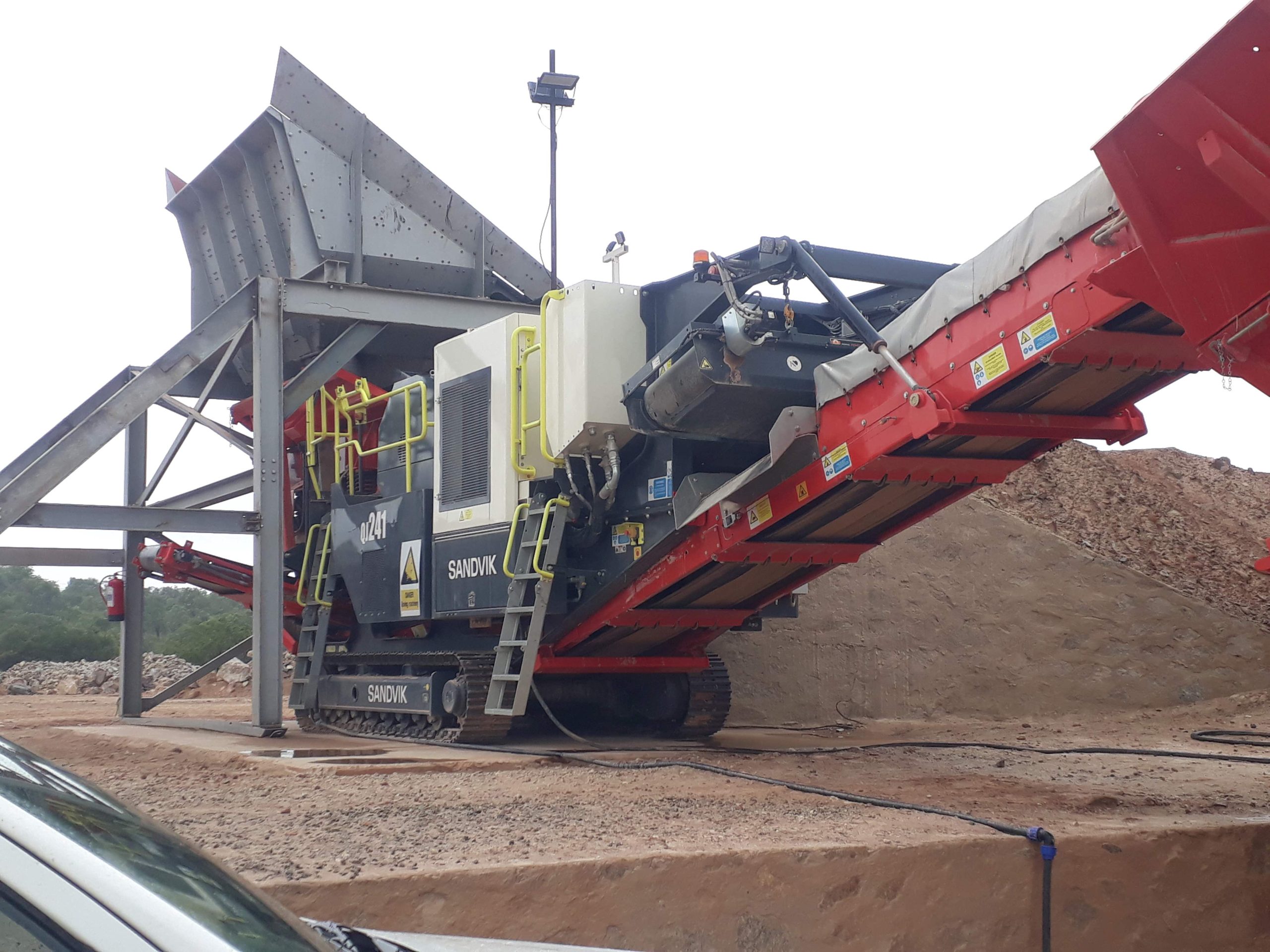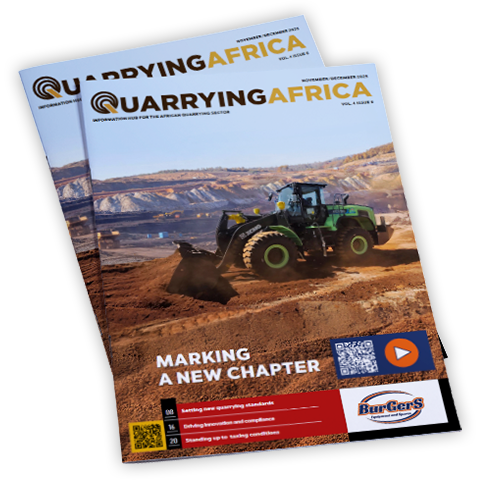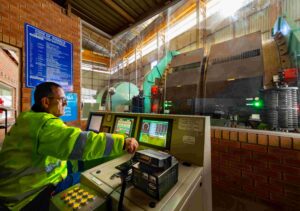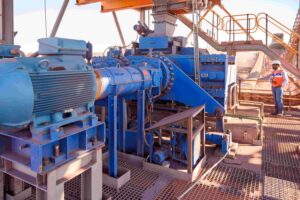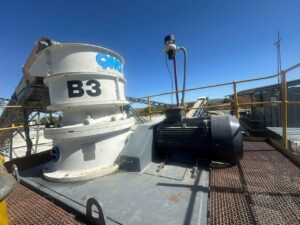From its in-country remanufacturing facilities to its innovations in autonomous mining, Sandvik’s operations in Zimbabwe remain responsive to customer needs and ambitions. A recent highlight is the success achieved in an ongoing automation project where five automated trucks are deployed at an underground room-and-pillar mine, explains Brian Chitenderu, Sandvik territory manager for Zimbabwe
“The automation project has been particularly exciting for us, as this has demonstrated how we can push boundaries with Sandvik’s leading edge digital technology,” says Chitenderu. “At the heart of technological progress like this are the strong relationships of trust that we have built with customers over many years.”
This collaboration allowed an ambitious project to begin a few years ago, in which a progressive mining customer partnered with Sandvik to introduce automation into a low profile, room-and-pillar environment. The trials focused on testing the 45 tonne Toro TH545i underground dump trucks in certain main haulages of the mine. According to Chitenderu, an important milestone was achieved in early 2024 – with a fully automated loop that includes an underground crusher.
“The years leading up to this point saw a great deal of R&D work from our Finland factory, especially regarding the traffic management system,” he says. “This complex system manages five of our TH545i trucks, to which another five may still be added.”
Among the factors to consider is that the mine runs mainly manual trackless equipment, which must interact with the automated units. The process required constant collaboration between the customer and various expert teams from Sandvik Mining and Rock Solutions.
“The success of these trials makes this intervention the first automated trucking loop in a low-profile, room-and-pillar environment,” he notes. “The next step in this phased automation approach will be to have a matching loader, and then go through the various stages of automation for the drills.”
Chitenderu highlights that the Sandvik operations in Zimbabwe have also evolved their support strategies to include a full remanufacturing service for its underground equipment. By upgrading its workshop infrastructure and expertise to go beyond repairs or refurbishment, customers can cost effectively have their truck, loader or drill remanufactured in-country.
“The advantage of this model is that we can make a complete OEM’s assessment of what work needs to be done, and then return the machine to our stringent specifications,” he explains. “This also means we can give that machine the same warranty as a new unit – as we know the standard to which it has been rebuilt.”
In the seven years that the remanufacturing programme has been active, there have been 136 items of equipment remanufactured and returned to customers – giving them valuable ‘second lives’. Among the infrastructure now supporting this effort is a state-of-the-art rock drill testing facility installed in November 2023.
“This automated testing unit allows us to assess each of the drills we work on, giving customers the confidence in the standards to which we operate,” he says. “We also offer our customers a range of support packages, from expertise-on-site to full maintenance contracts.”
In addition to supporting the offerings that fall under the Sandvik Mining and Rock Solutions business area, the Zimbabwe operation also serves Sandvik Rock Processing’s range of crushers, screens and feeders. This priority is seeing resources being developed in-country, to work in close collaboration with the Sandvik Rock Processing team in South Africa. The outcome will be shorter lead times on technical assistance for customers, as local expertise grows.
“With our first dedicated employee already in place for Sandvik Rock Processing, we are developing the local capability for scheduled maintenance and breakdowns,” he says. “This is a key aspect of growing our crushing and screening business in Zimbabwe.”
Skills development is a cornerstone of the company’s growth strategy not just in terms of trainee numbers but in the fast-changing nature of the expertise required. Chitenderu says the company’s apprenticeship programme has been evolving to include more electronics in the traditionally mechanical content – leading to training that is more focused on mechatronics and data analysis.
“We have even developed a new qualification and curriculum – in collaboration with the national ministry of education – which will be available at technical colleges,” he says. He notes that Sandvik’s pipeline of skills includes its own apprentices as well as graduate engineers, and is working with the University of Zimbabwe’s Engineering, Mining and Metallurgy Faculty and the Zimbabwe School of Mines to sensitise students in how technology is changing the mining sector.
“We are making future engineers aware of the digitalisation and automation journey currently underway in mining,” he says. “It’s important that they are familiar with these trends when they enter the market after their studies.”
Underpinning its service levels to customers in Zimbabwe is the ready availability of spare parts, Chitenderu concludes. These are offered through over the counter sales and also through vendor managed inventory or consignment stock – depending on what suits each customer.
